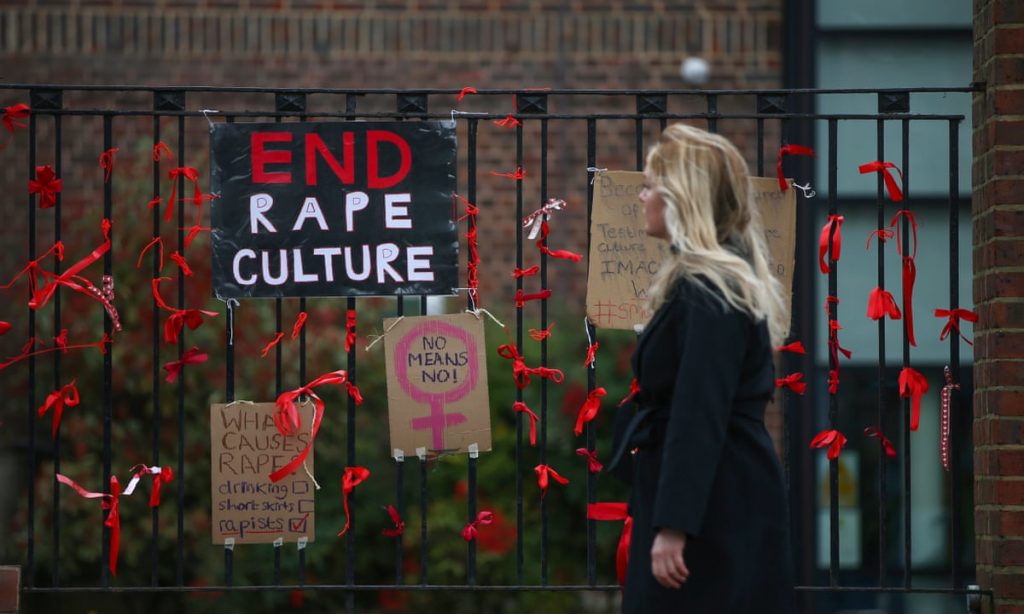
Sexual harassment and online sexual abuse are such a conventional aspect of pupils’ everyday lives they don’t see any point in confronting or reporting it, students have expressed to Ofsted inspectors.
Girls experience this abuse disproportionately, facing the likes of misogynistic name-calling, online abuse and rape jokes amongst many other harrowing displays of sexual harassment. Inspectors were informed that boys share nude photos on apps, such as Snapchat, “like a collection game”.
Sexual harassment has become “normalised” for teenagers and children, in education, online and in unsupervised areas such as parks, according to a review by the schools’ inspectorate, published today (10 June 2021).
It’s important to add that sexual harassment has always been the norm for young girls under capitalism, but the intensification of such abuse signals a drive to oppress and economically exploit girls and women ruthlessly.
The review showed that teachers routinely minimise the extent of the issue and that sex education in schools was so removed from the reality of young people’s lives that students often consult social media or their friends for advice.
The report determined that school inspections, by Ofsted and the Independent Schools Inspectorate, were “sometimes” not as vigorous as they should’ve been on sexual harassment and there was not consistent collective working happening between schools and local safeguarding teams. The use of the word “sometimes” is interesting when this problem appears widespread and common.
Ensuing thousands of chilling statements depicting sexual abuse and misconduct in schools were reported on the Everyone’s Invited website earlier this year, Ofsted was requested to organise a rapid review of sexual harassment and abuse in schools and colleges in England.
Inspectors communicated with more than 900 students when they visited 32 anonymous schools and colleges in both the private and state sector, including some which were identified on Everyone’s Invited.
Nine in ten girls and half of the boys who participated in the review disclosed that being sent “dick pics” occurred “a lot” or “sometimes” to either themselves or their peers. Similarly, 92% of girls and 75% of boys had witnessed or experienced sexist name-calling.
Following the discovery of severe safeguarding failings, inspectors had to terminate a visit and start a full inspection at one school during the eight-week inquiry. Despite a spotlight on secondary school children, inspectors also visited two primary schools and encountered concerns that pupils were watching pornography and other inappropriate content on social media.
In the aftermath of the review, many have called for the banning of mobile phones in schools, citing phones as the main conveyor belt for sexual harassment. However, this doesn’t address the root of the problem. In a society that doesn’t care about the plight of girls, boys do not face accountability or consequence for their actions on a systemic level and are rather encouraged to commit these acts in the name of the patriarchy. It is these issues that need tackling foremost, rather than devices.
Reports of school headteachers demanding students to not share their experiences have become quite commonplace, highlighting the institution’s need to save its reputation rather than listen to survivors. The complicity in hiding these cases serves to silence girls beyond their childhood, robbing them of a voice to fight back against the violence that is committed against them.
As socialists, we cannot be passive in the face of sexual violence against girls. We need to fight to destroy the misogyny that warrants these investigations by Ofsted and, in doing so, transform the objective reality which has made girls victims of sexual violence from such a young age, leading not only the way to the emancipation of women but also towards socialism.
Georgina Andrews




